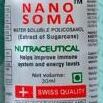In an era where heart health takes precedence, managing cholesterol levels is paramount for many individuals. High cholesterol is a significant risk factor for cardiovascular diseases, prompting millions to turn to statin medications—drugs that have become the cornerstone of cholesterol management. However, as awareness about natural alternatives grows, policosanol has emerged as a contender. This article delves into the differences between policosanol and statins, exploring their effectiveness, safety profiles, and roles in cholesterol control.
Understanding Cholesterol and Its Implications
Cholesterol plays a critical role in the body, aiding in the production of hormones, vitamin D, and substances necessary for digesting fats. It travels through the bloodstream in lipoproteins, with two types being essential to consider: low-density lipoprotein (LDL) and high-density lipoprotein (HDL). LDL is often termed “bad” cholesterol, as high levels can lead to plaque buildup in arteries, increasing the risk of heart disease. Conversely, HDL is regarded as “good” cholesterol because it helps remove LDL from the bloodstream.
Statins: The Conventional Approach
Statins are a class of medications that lower cholesterol levels by inhibiting an enzyme (HMG-CoA reductase) involved in the production of cholesterol in the liver. They are known for their ability to reduce LDL levels significantly and may also improve HDL levels. Common statins include atorvastatin, simvastatin, and rosuvastatin, among others.
Benefits of Statins:
- Proven Effectiveness: Numerous clinical studies back the efficacy of statins in reducing cholesterol and associated cardiovascular risk.
- Cardiovascular Protection: Statins not only lower cholesterol but also provide protective benefits by stabilizing plaque in arteries and reducing inflammation.
Concerns with Statins:
- Side Effects: Some patients experience muscle pain, liver damage, digestive problems, and increased blood sugar levels.
- Dependency: Patients often need lifelong treatment, and there can be challenges in discontinuing use without experiencing rebound effects.
Policosanol: The Natural Alternative
Policosanol is a natural substance derived from the waxy coating of sugarcane and other plants, and it has gained popularity in recent decades as a cholesterol management alternative. Its mechanism of action seems to involve inhibiting the absorption of cholesterol in the intestines and enhancing the activity of HDL.
Benefits of Policosanol:
- Natural Ingredient: As a natural supplement, policosanol may appeal to those looking to avoid pharmaceutical interventions.
- Lower Side Effect Profile: Some studies suggest that policosanol tends to have fewer side effects compared to statins, although individual experiences may vary.
- Cholesterol Reduction: Research indicates that policosanol can lower LDL levels and improve overall cholesterol profiles.
Limitations of Policosanol:
- Limited Research: While some studies suggest its efficacy, policosanol has not undergone the same rigorous testing as statins, making definitive conclusions about its long-term benefits less certain.
- Variable Responses: Effectiveness can differ from person to person, and not all individuals may experience significant results.
Choosing Between Policosanol and Statins
For anyone considering cholesterol management options, the choice between policosanol and statins depends on various factors, including individual health conditions, cholesterol levels, risk factors for heart disease, and personal preferences regarding medication.
Consulting Healthcare Professionals
It is crucial to consult a healthcare provider before starting any treatment. A thorough evaluation of cholesterol levels, overall cardiovascular risk, and any underlying health issues will help determine the most appropriate approach.
A Holistic Approach to Cholesterol Management
Regardless of the management strategy chosen, lifestyle changes play an integral role. Incorporating a heart-healthy diet, increasing physical activity, maintaining a healthy weight, and avoiding tobacco use can enhance cholesterol management and reduce cardiovascular risk.
Conclusion
In summary, both policosanol and statins offer pathways for cholesterol control, each with its unique benefits and risks. While statins have a well-established history and proven efficacy, policosanol presents a natural alternative that may appeal to those seeking a gentler approach. Ultimately, the choice between these options should facilitate a discussion with healthcare professionals, ensuring that individuals receive personalized advice tailored to their health needs. As research continues to evolve, the dialogue around natural alternatives for cholesterol management will likely expand, providing even more options for those striving for heart health.
